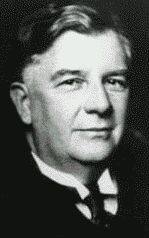
I Ching Study
| 1 › 5 › 1 |
The less one thinks about the theory of the I Ching, the more soundly one sleeps. - Carl Gustav Jung, advocating it
Easy Introduction
Warming Up
 |
| Richard Wilhelm, able I Ching translator |
The superior man acquaints himself with many sayings of antiquity and many deeds of the past, in order to strengthen his character thereby.
Do not complain about this truth; enjoy the good fortune you still possess.
Perseverance alone does not assure success. No amount of stalking will lead to game in a field that has none.
Of all that is good, sublimity is supreme.
After due reflection, man attains joy by turning away from the lower pleasures and seeking the higher ones.
Creativity comes from awakening and directing men's higher natures, which originate in the primal depths of the universe and are appointed by Heaven.
Instead of solid accomplishments, some pursue pleasures and self-gratification.
Beneficial Images
Richard Wilhelm's text and commentary was rendered into English by Cary F. Baynes (1950). James Legge of Oxford University published his translation in 1882. We take off from Legge's work here. It is published in full on another page: [Link].
Old drawings of every one of the 64 hexagrams are given here. The drawings were found in a work that did not copyright them. There is one old drawing for each hexagram.
Some say that the backbone of the oracles are images. They are often multi-levelled, often unclarified, and can lend themselves to widely different interpretations and avenues from them. Oracle answers can thus appear to be multifarious. Besides they can be enigmatic and obscure. For these and other reasons they are fascinating to some of us, in that they demand something for us as well.
By pondering the images you may come closer to interesting assertions. Some benefits come on top of much exertion, others in other ways.
Maybe opposed to pondering on this and that for oneself, is the "buying" of assertions from others, including a tradition. Mind there is perhaps nothing great in listening to some "shall-looking" (determined) assertion in translation, if the original is much more suggestive, unclear, and lends itself to many biases - maybe also many at once.
What is below - in its present form - should not be understood as canonical teachings. One had better beware of many over-assertive statements, as Buddha says [LINK].
I myself think that there is more to the ancient Chinese way of thinking than meets the eye. - Carl Gustav Jung in the foreword of the Wilhelm translation.
The sayings
"Every little helps." - British proverb
THE ancient Chinese book system or systemic book fabric that is called I Ching, contains many heart-warming or warning teachings tied in with the seasons in life and nature. Many of its illustrative imagery items and handed-over sayings can be plausibly rendered or translated into proverbs, half-proverbs, proverb-looking maxims and tenets and aphoristic sayings of many sorts. And much like fortune coooky notes they may carry a good deal of generalised suggestive counsel. General statements - we find them in many proverbs - may suit very many no matter their circumstances. As for I Ching,
Had a human being made such replies, I should, as a psychiatrist, have had to pronounce him of sound mind, at least on the basis of the material presented. - Carl Gustav Jung commenting on his own I Ching notes!
Learn to consider what is right
One is to learn to consider in order to reduce and avoid humiliations and manage much better.
IN THE course of a life some humiliations are likely to enter in. They tie in with such as being too little, too young, too feeble, with natural diseases, ageing and not getting aglow for first-class, good causes. There can be many of them.
The natural world fairly often bring humiliations far and wide, through ageing and otherwise. You may eventually succeed anyhow. And a good warning may save you as well. Being modest and direct should help mental clarity of those involved. And those who are clear at heart, may also succeed eventually. The humiliations should not be greater than your heart and nerves can stand. In that case they stiffen instabilities, perhaps, and that is not good for animals or men.
In order to steer outside of a great deal of natural-looking humiliations, have a good look at what ancient Chinese thinkers found out, and try not to humiliate valid experiences, very valid viewpoints and good axioms or wisdom proverbs that eventually came out of these ancient probings.
[Yi Jing] describes itself [to me] as a caldron, that is, as a ritual vessel containing cooked food [claiming:] "I contain (spiritual) nourishment." - Carl Gustav Jung
Needed Explanations
Sixes and nines in the text
- "Six" means a yin line, which is a broken line.
- "Nine" means a yang line, which is an unbroken line.
- "The first place" is at bottom, as the original hexagram lines are built up that way.
- "The sixth placement", then, is on top, where lots of action is supposed to be.
"Six" and "nine" derive from how the data were processed from ancient times. One may flip coins to get them too. What is more, the numbers and placements mentioned above, should be easily seen in the hexagram figures that are now supplied. [MORE]
Literature
USER'S GUIDE to abbreviations, the site's large bibliography, letter codes, dictionaries, site design and navigation, tips for searching the site and page referrals. [LINK]
© 1998–2009, Tormod Kinnes, MPhil [E-MAIL] — Disclaimer: [LINK]